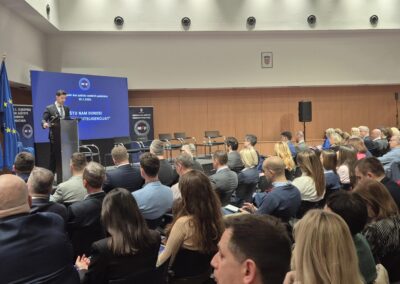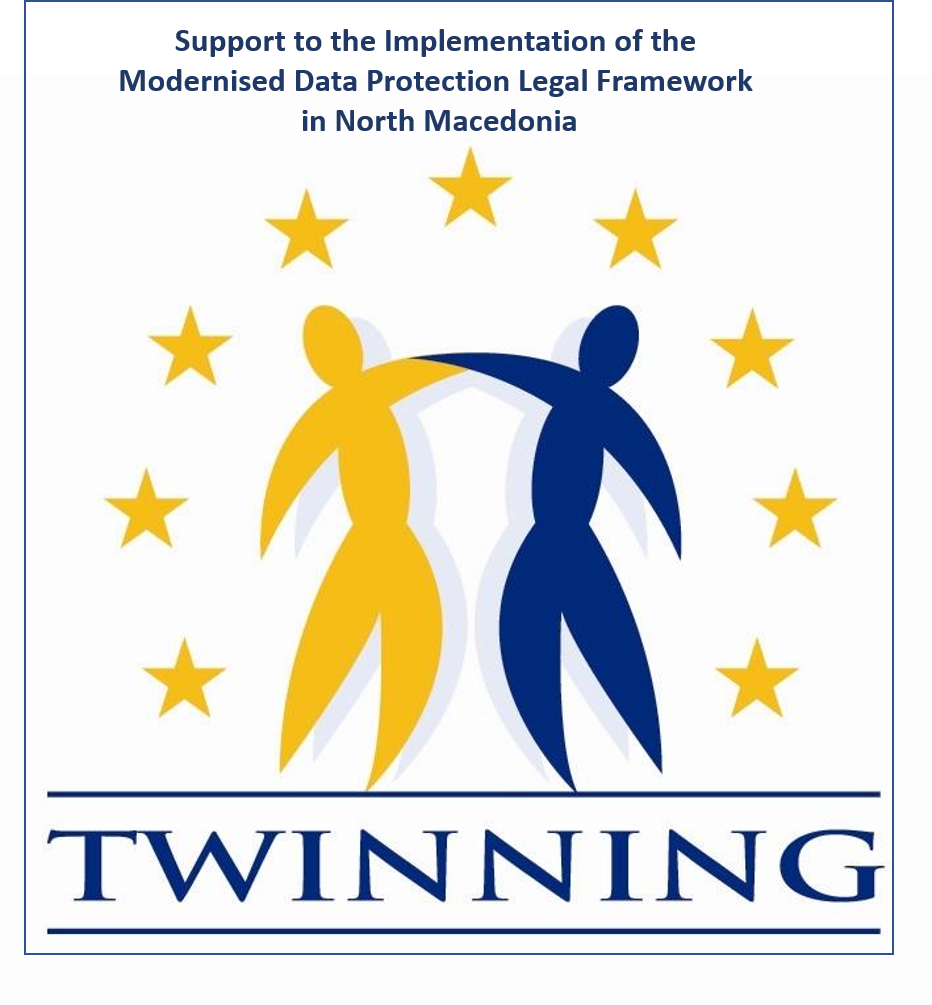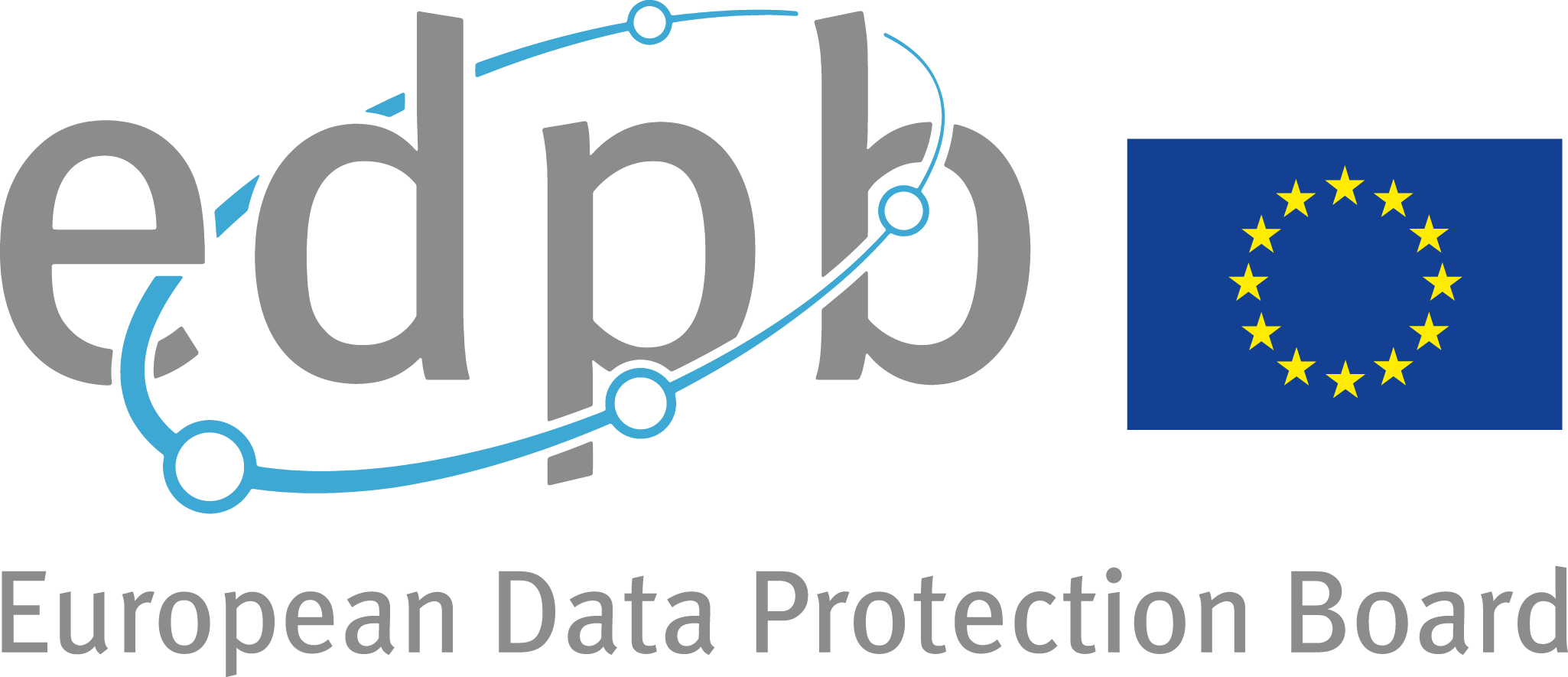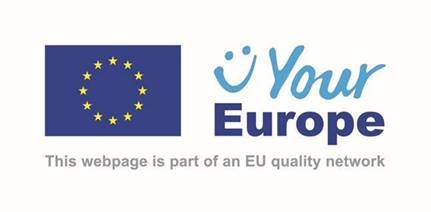On 28 January 2025, the Croatian Personal Data Protection Agency marked Data Protection Day for the 19th time by organizing the conference “The Future of AI: What Lies Ahead?”, focusing on the advantages and risks arising from the development and use of artificial intelligence.
At the conference, the free web tool Olivia, developed by the Croatian Personal Data Protection Agency in cooperation with partners within the European ARC II project, was also presented. Anamarija Mladinić, Head of the Department for EU, International Cooperation, and Legal Affairs at the Agency and Vice-Chair of the Council of Europe Convention 108 Committee, showcased the features offered by Olivia, which includes a series of learning modules, knowledge tests, and templates for internal documents with which entrepreneurs can demonstrate their compliance with the General Data Protection Regulation.

“The General Data Protection Regulation and the Artificial Intelligence Act are inseparably linked — compliance with the GDPR is a fundamental prerequisite for developing ethical, lawful, and human-centered artificial intelligence that respects human rights, democracy, and the rule of law. These regulations do not limit innovation but encourage it, creating a safe and reliable foundation for AI development that maximizes societal benefits while minimizing risks,” said Zdravko Vukić, Director of the Croatian Personal Data Protection Agency, who addressed the audience for the first time in his capacity as Vice-Chair of the European Data Protection Board. He emphasized that the Agency, with adequate financial and human resources, is ready to take on the role of the supervisory authority for monitoring the implementation of the Artificial Intelligence Act.

The envoy of the Prime Minister of the Republic of Croatia and Minister of Justice, Public Administration, and Digital Transformation, Damir Habijan, highlighted that the issue of artificial intelligence is not merely a technological question but one that affects society as a whole. He stated that the benefits and risks of AI are significant and that good regulation is the foundation for developing artificial intelligence that respects fundamental rights while remaining globally competitive. “We need an open dialogue, interdisciplinary cooperation, and education, which the Agency continuously works on, and I commend that, as well as its quick responses in cases where citizens’ rights are violated.”
Maksimilijan Šimrak, Member of Parliament and envoy of the Speaker of the Croatian Parliament, also spoke about the negative effects on individuals’ fundamental rights and freedoms: “There is no doubt that artificial intelligence has already significantly changed our lives, education, healthcare, and business, but it can also have negative sides that must be addressed. It is necessary to establish a balance between innovation and the protection of privacy and personal data.”
All speakers emphasized that developing artificial intelligence that respects citizens’ fundamental rights and freedoms requires cooperation among all key stakeholders, from European institutions and national governments to the private sector, academia, and citizens. “Our common mission must be to ensure that artificial intelligence brings maximum benefit to society,” emphasized Andrea Čović Vidović, Deputy Head of the European Commission Representation in the Republic of Croatia.
The topic “What Does Artificial Intelligence Bring Us?” was also discussed in a panel of the same name. Moderated by Anamarija Mladinić, Head of the Department for EU, International Cooperation, and Legal Affairs at the Croatian Personal Data Protection Agency, the panelists — Assoc. Prof. Dr. Robert Kopal (Effectus College), Dr. Karlo Knežević (Head of AI Team, Sofascore), Stefan Martinić, LL.M. (Martinić Law Office), Tomislav Vazdar (board member and expert on AI and cybersecurity, CroAI), and Marko Đuričić (legal expert and data protection officer, Visage Technologies) — stressed that artificial intelligence systems in many cases involve processing vast amounts of personal data. It is crucial that in all phases of development, testing, and use, AI systems comply with the General Data Protection Regulation. Certainly, the use of artificial intelligence tools will become as common as the use of internet search engines, but it is essential that these systems are designed and used responsibly and transparently, respecting fundamental rights, data protection principles, human oversight, and democratic values.
Establishing a space for the safe testing of new AI solutions — a sandbox — will help achieve this mission. According to Article 57(1) of the Artificial Intelligence Act, Member States must ensure that their competent authorities establish at least one national AI regulatory sandbox to facilitate the development and testing of innovative AI systems under strict regulatory supervision before placing them on the market or putting them into use, and which must be operational by 2 August 2026.
-
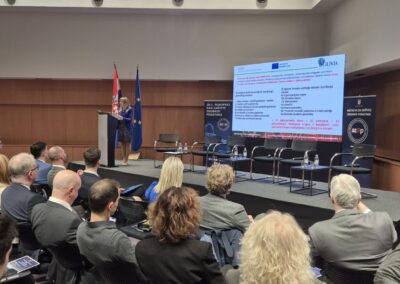
Predstavljanje web alata "Olivia" - Anamarija Mladinić, načelnice Sektora za EU, međunarodnu suradnju i pravne poslove, AZOP i potpredsjednica Odbora Konvencije 108 Vijeća Europe
-

-

Predstavljanje web alata "Olivia" - Anamarija Mladinić, načelnice Sektora za EU, međunarodnu suradnju i pravne poslove, AZOP i potpredsjednica Odbora Konvencije 108 Vijeća Europe
-

-

-
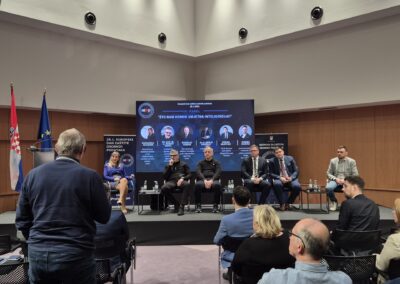
-

-
